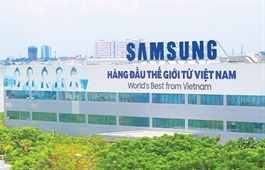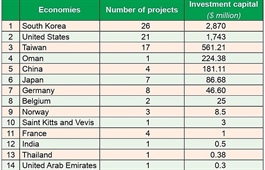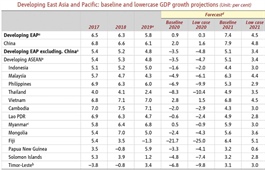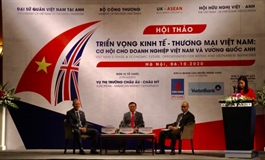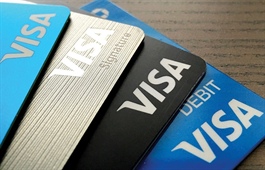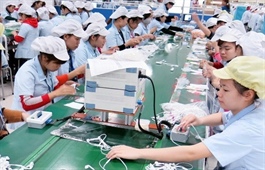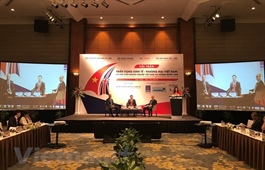Rivalries marked by speculations
Rivalries marked by speculations
The speculative hotel chain merger between Accor and Intercontinental Hotel Group is once again garnering headlines about the potential tie-up that would catapult the joined brands over Marriott to become the world’s largest hotel company with more than 1.6 million hotel rooms.

In Vietnam, IHG is now operating 14 hotels with four well-known brands
|
Intercontinental Hotel Group (IHG) has a roughly $10.7 billion market cap compared to Accor’s nearly $7 billion and, based on current prices, a combined group could have a market value of about $17 billion. If Accor and IHG indeed tie the knot, the deal would be the biggest in hotels since the Marriott-Starwood merger in 2016 that turned Marriott into the world’s largest hotel chain.
While Accor and its brands are more skewed towards Europe and many emerging markets, IHG has larger operations in the United States and is also growing rapidly across China, so that the complementary geographies would result in a global network with less overlap.
The long-rumoured merger resurfaced in the context that the ongoing pandemic is already causing much uncertainty in the travel sector, shaking the hospitality industry to its core. Regardless if it is a good or bad time, the acquisition could be an excellent way that allows companies to combine resources, cut operation costs, and share organisational knowledge through consolidations to gain immediate access to a market or a product.
A good case in point is Accor Hotels’ acquisition of Fairmont Hotels in 2016 and IHG’s purchase of the Kimpton Hotels and Restaurants in 2014. In addition, downturns can make sense as the right time to move ahead with a merger or acquisition, as tough times leads to better deals. But a global pandemic that has cratered travel demand makes it extremely difficult to put any price, let alone a distressed one, on a travel-related company.
Asset-light business model
Both IHG and Accor are operating an asset-light business model (the model of choice for international hotel groups) where they do not own much property but instead franchise their brand and offer hotel management services to the owner. Accor chairman and CEO Sebastien Bazin said, “Accor has now become a fully asset-light group. By combining a two-year €1 billion shareholder return programme with the pursuit of a targeted acquisition strategy, the group demonstrates the strength of its new model and its ability to rigorously execute its strategic roadmap.”
Hotel management services are provided to hotel owners by hotel chain operators. Those services relate to the day-to-day operation of a hotel and include financial accounting, generating revenue, managing hotel-specific relations, advertising, promotion and marketing services, IT support, human resources management, and executing and supervising repairs and maintenance of the hotel.
After engaging in a franchising contract, the franchisor will authorise the franchisee to use a specific name and logo, purchased for an annual fee plus royalties usually based on a percentage of sales. Franchisees share such benefits as brand-name identity, corporate image advertising, centralised reservation systems, corporate training programmes, and volume purchasing.
The asset-light model, based on management and franchise contracts, reduces capital intensity and attendant investment risk while allowing brands to achieve scale rapidly (a crucial element of online visibility) without the exorbitant start-up losses.
Competition issues
In the frame of an asset-light business model, the entry can take place based on management or franchise agreements with property owners. This implies that building costs, site availability, and issuance of planning permissions do not apply to hotels operators which might want to enter a specific market. The only barriers for a potential new entrant are the possession of a brand and experience in managing a hotel business.
Therefore, it is considered that the potential merger will not have an impact on the barriers to entry or expansion in the market for the provision of hotel management services, and that competition in that market will remain dynamic after the deal.
Besides that, a hotel operating under a franchise agreement also can switch to being operated on an independent basis (without a licensed brand). In particular, once the franchised agreement is terminated, the former franchisee can easily operate the hotel, as he is the hotel owner and has experience in the hospitality sector.
Thus, switching to being an independent hotel only requires investment in changing the image of the hotel.
As the commercial strategy and the distribution channels are managed locally, there are limited commercial costs associated with becoming an independent hotel. Therefore, the market for hotel franchising, which is currently dynamic, is likely to remain so post-transaction.
In Vietnam, Accor manages nearly 30 hotels nationwide with outstanding brands such as Sofitel, Pullman, MGallery, Novotel, Mercure, and the Premier Village Danang Resort. Meanwhile, IHG is now operating 14 hotels over four brands (Six Senses, InterContinental, Crowne Plaza, and Holiday Inn) with more than half of them carrying the InterContinental name.
However, as the Law on Competition of Vietnam grants the competition agency the authority to deal with offshore activities and transactions that have or may have the “lessening of competition impact” on the Vietnamese market, the speculative transaction may still fall into the scope of adjustment under the law if the notification threshold is met.
Merger filing is mandatory for a proposed merger with total assets in the Vietnamese market of the enterprise or group of affiliated enterprises was VND3 trillion ($130.4 million) or more in the financial year immediately preceding the proposed implementation of economic concentration. The threshold is also triggered if total sales turnover or input purchase turnover in the Vietnamese market of the enterprise or group of affiliated enterprises was VND3 trillion ($130.4 million) or more in the financial year immediately preceding the proposal.




